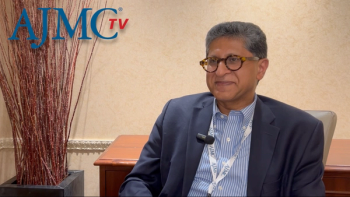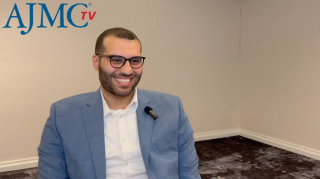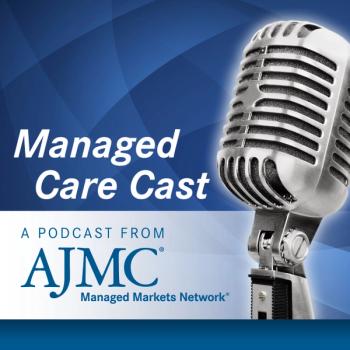
Insurance
Latest News

Latest Videos

Podcasts
CME Content
More News

Extended hospital stays among Medicare Advantage beneficiaries translated to an estimated 1.8 million additional hospital bed days in 2022.

Many states are enacting restrictions on insurers’ prior authorization policies, but these laws may increase costs and lead to other undesirable consequences.

To mark the 30th anniversary of The American Journal of Managed Care, each issue in 2025 includes a special feature: reflections from a thought leader on what has changed—and what has not—over the past 3 decades and what’s next for managed care. The September issue features a conversation with Dora Hughes, MD, MPH, chief medical officer and director of the Center for Clinical Standards and Quality at CMS.

Why is health care so staggeringly difficult to use? How do we fix it? To move forward, we first must look back, because the system we have today was not really designed, it evolved, notes Ariela Simerman, Turquoise Health.

Chris Johnson, MBA, emphasizes that the constantly shifting landscape of Medicaid could further confuse both patients and health care providers, potentially leaving children behind.

Patients with acute respiratory failure who’ve been placed on a mechanical ventilator are less likely to be transferred to high-volume centers if they are uninsured, thus increasing their odds of mortality.

Ravi Vij, MD, MBA, explains how insurance-related delays in CAR T approval slow treatment initiation, increase interim therapy costs, and contribute to patient burden.

Treatment challenges that Anasuya Gunturi, MD, PhD, encounters in her work at Lowell General Hospital include language differences and confusion about scheduled appointments.

Hospital accountable care organization (ACO) participation did not impact emergency department admission rates, length of stay, or costs, suggesting limited effectiveness in reducing spending for unplanned admissions and challenging hospital-led ACO cost-saving strategies.

More large employers with high-deductible health plans with health savings accounts offer preventive drug list benefits over time.

Laxmi Patel, chief strategy officer at Savista, outlines major impacts of the “One Big Beautiful Bill” Act on Medicaid and what hospitals can do to prepare for these changes.

Elise S. Tremblay, MD, MPH, explores potential policy solutions and research directions to address ongoing challenges in insulin affordability and access.

Proposed Affordable Care Act (ACA) premium hikes threaten health care access, with potential increases of over 75% for enrollees.

In this clip, Elise S. Tremblay, MD, MPH, explores factors behind fluctuations in insulin out-of-pocket costs and highlights the serious health consequences of persistently lower insulin use.

Medicare Advantage outperformed traditional Medicare on clinical quality measures before and during the COVID-19 pandemic; mid-pandemic, however, traditional Medicare narrowed the gap on some in-person screenings.

Elise S. Tremblay, MD, MPH, discusses her study on trends in insulin out-of-pocket costs and use disparities from 2008 to 2021, highlighting how health plan structure and income level influenced access and adherence.

This retrospective analysis explored the impact of infertility health benefit design on the use of infertility medications and procedures and pregnancy outcomes.

This study examined the impact of price transparency and prosocial messaging on patient engagement of price-protected consumers in seeking value-based care.

Key legal, ethical, and compliance considerations for managed care professionals navigating the evolving landscape of psychedelic-assisted therapy include regulatory risks, data privacy challenges, reimbursement limitations, and the need for culturally informed care models.

To mark the 30th anniversary of The American Journal of Managed Care (AJMC), each issue in 2025 includes a special feature: reflections from a thought leader on what has changed—and what has not—over the past 3 decades and what’s next for managed care. The August issue features a conversation with Charles N. (Chip) Kahn III, MPH, the president and CEO of the Federation of American Hospitals and a longtime member of the AJMC editorial board.

At the recent regional Institute for Value-Based Medicine® event in Boston, Anasuya Gunturi, MD, PhD, Lowell General Hospital, was a panelist for the discussion, “Evolving Breast Cancer Care: Addressing Unmet Needs Across the Patient Journey.”

This Managed Care Cast episode explores how high costs and inconsistent insurance coverage for incretin mimetics impact obesity management and patient care.

Patients who experienced a formulary-related rejection of cariprazine for adjunctive treatment of major depressive disorder had significantly higher hospitalization rates than those with approved claims.

Mental health, care of acute and chronic conditions, primary care access and prevention, and maternal and perinatal health were identified as key focus areas among a majority of states.

There is a great need to streamline the process from the tissue sample to the diagnostic lab, whether it's genomic or immunohistochemistry, Robert Kratzke, MD, says.

















